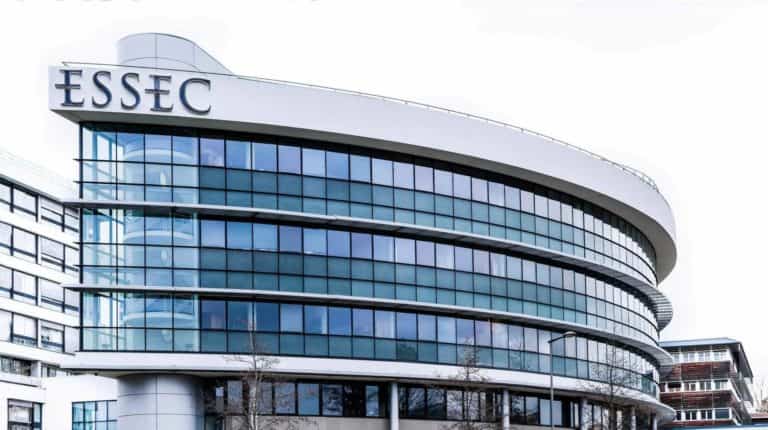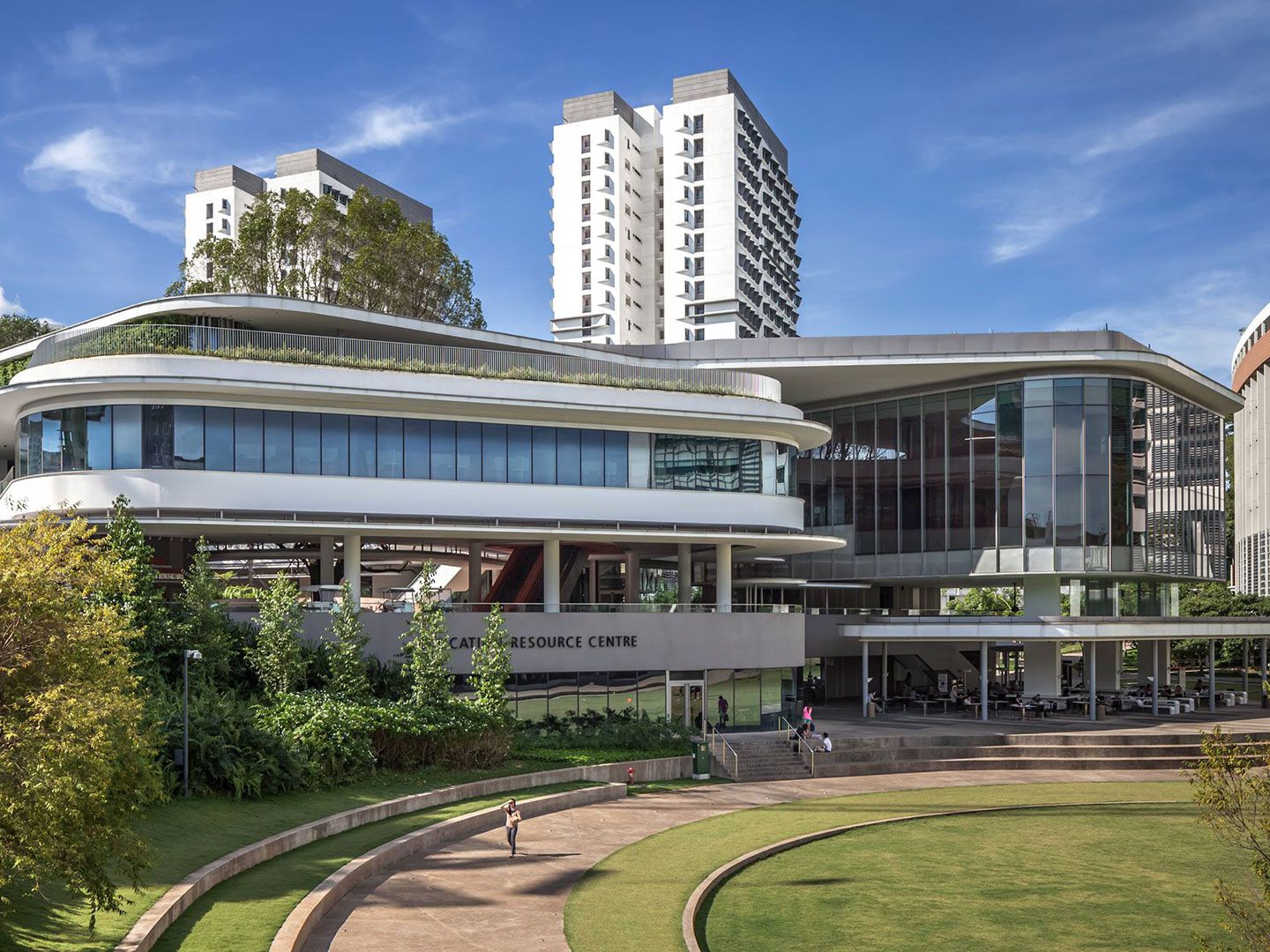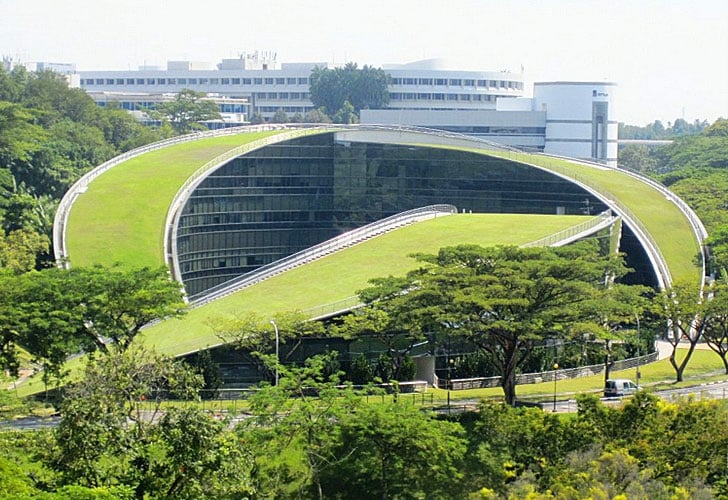List Of University In Singapore
| UNIVERSITY | DETAILS | WEBSITE | ADDRESS | TELEPHONE |
| National University of Singapore | Undergraduate tuition and fees: 38,200 SGD (2018 – 19) President: Tan Eng Chye Total enrollment: 38,596 (2016) Founded: 1980 Mascot: LiNUS |
https://www.nus.edu.sg/ | 21 Lower Kent Ridge Rd, Singapore 119077 | (65) 6516 6666 |
| Nanyang Technological University | Undergraduate tuition and fees: 7,850 SGD, International tuition 15,700 SGD (2014 – 15) Total enrollment: 32,699 (2014) Founded: 1991 Colors: Blue, Red, Crimson, Midnight blue Mascot: Lyon the lion |
https://www.ntu.edu.sg/ | 50 Nanyang Ave, Singapore 639798 | (65) 6791 1744 |
| Singapore Management University | Undergraduate tuition and fees: Local tuition 10,190 SGD, Domestic tuition 12,840 SGD, International tuition 17,530 SGD (2011 – 12) Founded: July 29, 2000 Total enrollment: 9,280 (2016) President: Lily Kong Colors: Blue, Gold |
https://www.smu.edu.sg/ | 81 Victoria St, Singapore 188065 | (65) 6828 0100 |
| Singapore University of Technology and Design | Undergraduate tuition and fees: Domestic tuition 12,400 SGD, International tuition 26,000 SGD (2016 – 17) Campus: Urban Founded: 2009 Motto: A Better World By Design Colors: Black, White School types: College/University, Autonomous university |
https://www.sutd.edu.sg/ | 8 Somapah Rd, Singapore 487372 | (65) 6303 6600 |
| Singapore Institute of Technology | Students: 8,500++ Campus: Distributed campuses President: Chua Kee Chaing Academic staff: 350++ Founded: May 2009, Singapore Colors: Black, White, Red |
https://www.singaporetech.edu.sg/ | 10 Dover Dr, Singapore 138683 | (65) 6592 1189 |
| Singapore University of Social Sciences | Undergraduate tuition and fees: 33,079 SGD (2012 – 13) Founded: 2005 Total enrollment: 14,000 (2016) Colors: White, Blue, Red |
https://www.suss.edu.sg/ | 463 Clementi Rd, Singapore 599494 | (65) 6248 9777 |

All we need to know about universities in Singapore
Introduction
Singapore is a well-known economic and educational center that draws people from all over the world to study there. Local universities are among the greatest in Asia for excellent education due to their programs and strong academic standards. The business, economics, and trade fields offer some of the best study options. Students who want to lower the cost of their education might apply for government institutions grants and scholarship programs. English is virtually universally spoken, even in locals’ homes, which makes it easier for you to adjust to the local society and way of life. After world-class education, this, along with your academic credentials, may aid in helping you find employment. Jobs in Singapore are well-paid due to the country’s flourishing economy.

How many universities are there in Singapore?
Singapore has the following divisions among its higher education institutions:
- 6- public universities
- 5-polytechnics
- 2-art institutions
- fifteen or so private universities
Singapore’s higher education institutions provide a wide range of educational programs for domestic and International students. Private colleges offer unique pathway programs designed for an overseas batch of students. Through collaborations with foreign colleges, many of them offer study exchange programs.
What is the cheapest university in Singapore?
Here is a list of some of Singapore’s less expensive universities:
- National University of Singapore (NUS)
- Nanyang Technological University
- Singapore Management University
- Singapore University of Technology & Design
- Republic Polytechnic
- Nanyang Academy of Fine Arts
- Temasek Polytechnic
Are there free universities in Singapore?
The few free universities in Singapore are only open to incoming students having Singaporean origin. International students are required to pay tuition even if they get qualified for scholarships and other types of financial aid.
Public Universities in Singapore
Six public universities in Singapore provide a variety of programs leading to graduate diplomas, master’s degrees, doctoral degrees, and bachelor’s degrees in higher education. Singaporeans and students from other countries get welcome at these public universities, funded by the government.
National University of Singapore (NUS)
The National University of Singapore (NUS) was Singapore’s first independently run research university. It is a public university
founded in 1905 as the King Edward VII College of Medicine. In 1980, the University of Singapore and Nanyang University merged to become the institution.
NUS University is not only a top Asian education institution but also a top worldwide university. NUS gets consistently ranked among the top 100 universities in the world according to all credible systems. Additionally, it excels in research in the areas of engineering, environmental studies, and physical science. More than 383 distinct courses and programs get offered by NUS’s 17 schools, with graduate diplomas, bachelor’s degrees, master’s degrees, doctoral degrees, and other higher education degrees.
Nanyang Technological University (NTU)
Singapore’s second-largest university is Nanyang Technological University. It was founded in 1955 as the former Nanyang University and changed its name to NTU after joining the National Institution of Education.
In addition to hosting four independent research and educational institutes, NTU has four major colleges, including a medical school founded in partnership with Imperial College London. These are:
- College of Engineering
- College of Business (Nanyang Business School)
- College of Humanities, Arts, and Social Sciences
- College of Science
- Lee Kong Chian School of Medicine
- Rajaratnam Institute for International Relations
- National Institute of Education
- Singapore Earth Observation and Research Institute
- Singapore Environmental Bioengineering
The engineering programs at NTU are one of the largest fields of study in the world. The business college’s MBA program (Nanyang Business School) gets ranked among the top 50 MBA programs worldwide. In Singapore, only The College of Science offers an honors degree in science, math, and mathematics Science approach to education.
Singapore Management University (SMU)
As Singapore’s third autonomous university, Singapore Management University gets founded in 2000. SMU gets established in partnership with the University of Pennsylvania’s Wharton School, one of the best business schools in the world. Singapore Management University wants to open up new horizons in business education for Singapore and Asia. In contrast to other public colleges in Singapore, Singapore Management University adopted the seminar-based teaching style and the course credit system from American universities.
Despite having a short history of fewer than 20 years, Singapore Management University is already at the top of respected university ranking systems around the globe. Singapore’s first and only triple-accredited business school is the Lee Kong Chian School of Business.
All Singapore Management University (SMU) students can participate in international exchange programs with partner universities and prestigious institutions like Carnegie Mellon University, the Wharton School at the University of Pennsylvania, and others. In addition, SMU current students can enroll in elective courses from several schools to pursue a second major if that is what they need. With these advantages, SMU graduates may be able to find more and better employment prospects.
Singapore University of Technology and Design (SUTD)
Technology and Design University of Singapore After NUS, NTU, and SMU, it was created in 2009 and is Singapore’s fourth autonomous public university.
Students can finish concurrent degree programs in 3.5 years, shorter than at other Singaporean public universities. In addition, academic periods begin in May, as opposed to September at other universities. Eight months sooner than the same class of students, SUTD students can graduate.
The Independent Academic Period will also be available to SUTD students beginning with the second academic year. Students can choose to enroll in courses unrelated to their field of study during this period or participate in the Internship Preparation Plan, allowing them to network with business leaders and prepare for their future professions.
Since SUTD is still a young institution, it will take some time before it can get ranked in the world’s academic rankings. Strong relationships and partnerships exist between SUTD and the best universities in the world. The Massachusetts Institute of Technology (MIT) and Zhejiang University worked together to establish it.
Singapore Institute of Technology (SIT)
Singapore Institution of Technology, the country’s first applied-to-learn university and fifth autonomous and research university, was established in 2009. SIT gets primarily designed for students who have earned a suitable diploma from one of Singapore’s Polytechnics. SIT is admitting junior colleges in Singapore and those with other international degrees.
In addition to thirty-four undergraduate programs awarded jointly or with its nine recognized abroad university partners, SIT currently provides fifteen undergraduate programs that are awarded solely by the institution. These degrees get divided into five clusters: engineering, chemical engineering and food technology, information technology, health, and social sciences, and design and specialized businesses to get the best learning journeys.
Singapore University of Social Sciences (SUSS)
The sixth autonomous and youngest university in Singapore, the Singapore University of Social Sciences, get founded in 2005 as the former SIM (Singapore Institution of Management) University (UniSIM). In 2017, it adopted the name Singapore University of Social Sciences.
The social sciences, lifelong immersive learning, and practical learning are primary areas of emphasis for SUSS, which caters to working adults and professionals. The degree programs get offered both full- and part-time to serve its students.
More than 70 undergraduate and graduate programs are available through SUSS’s five schools:
- School of Humanities and Behavioural Sciences
- School of Business
- S R Nathan School of Human Development
- School of Law
- School of Science and Technology
Explaining University Rankings
The Times Higher Education’s ranking of the world’s universities knows how well-known university research is and how frequently university-produced articles get cited internationally.
The Shanghai Jiao Tong University’s Academic Ranking of World Universities depends on the number of famous scientists who have graduated from the institutions on the list, the researchers who have received the most citations, and the universities’ overall contributions to the field of science.
The TopUniversities-created QS World University Rankings poll a sizable number of academic authorities regarding the standing of universities and assess the caliber of instruction.
US News & World Report’s Best Global Universities Rankings examines university graduation rates and the number of students who continue their studies in their second year. Additionally, it conducts a performance survey of university representatives.
Private Universities in Singapore
Curtin Singapore
The Curtin Education Centre of the Navitas Education Group oversees the Curtin University Singapore campus, which opened its doors for business in 2008. It provides degrees in business, communication, management, and fields relating to health practices.
According to the Academic Ranking of World Universities 2019, Curtin University is in the top 2% of universities worldwide.
One of the private schools to acquire the Singapore Education Trust Certification from the Committee of private education institutions
Singapore is Curtin Singapore. This honor goes to a private school in Singapore that offers high-quality instruction and advancements that result in successful educational outcomes.
DigiPen Institute of Technology Singapore
In 2008, DigiPen Institution of Technology opened its first international campus in Singapore upon invitation from the Singapore Economic Development Board. Princeton Review has consistently put DigiPen Institution of Technology in the top five of the Top 50 Undergraduate Games Design Schools, placing it at number four in 2019 for the past ten years.
The enterprise software, virtual reality, finance, digital entertainment, and automotive technology bachelor’s degree programs are among the five that DigiPen Institute of Technology Singapore now offers.
ESSEC Business School
In 2015, ESSEC Business School opened its first campus outside France in Singapore, the ESSEC Business School Asia-Pacific campus. Graduate programs offered in business administration, management, finance, foreign commerce, and healthcare administration.
The ESSEC Business School’s programs have received constant international recognition. ESSEC is ranked #4 for a master’s in management and #5 for a master’s in finance. The 2019 QS Business Masters Rankings place management and business analytics degrees in fourth place overall.
German Institute of Science and Technology
The German Institute of Science and Technology, TUM Asia, was established in 2002 when the Technical University of Munich (TUM) accepted an invitation from the Singapore Economic Development Board.
TUM has consistently placed in the top two among German universities in the World University Academic Rankings (ARWU) since 2011. Additionally, for three years running, it has consistently been among the top 25 in the world for engineering and technology (QS World University Rankings by Faculty 2017-2019).
In collaboration with Nanyang Technological University and the National University of Singapore (NUS), TUM Asia University
provides five master’s degree programs in science (NTU). The Singapore Institute of Technology is collaborating on two bachelor of science programs (SIT).
INSEAD
In Singapore, the European Institute of Business Administration (INSEAD) established its Asia campus in 1999.
In addition to being placed second in the QS World University Rankings by Subject 2019 for Business & Management Studies, INSEAD was ranked first by Bloomberg Businessweek in 2017 for its international MBA program.
A variety of business degrees and Ph.D. programs are available at the INSEAD Asia campus, in addition to executive education for management and leadership programs.
James Cook University in Singapore
James Cook University Australia opened a campus in Singapore in 2003, and the location is ideal for the university’s selection of top-notch degree programs. Undergraduate and graduate programs are available at James Cook University Singapore in business, information technology, psychology, education, accounting, the arts, aquaculture, environmental science, game design, tourism, and hospitality.
JCU Singapore was the first organization to receive the Singapore Education Trust Certification Star Rating (Edu Trust Star) in 2015, and it did so in 2019. It is the highest degree of recognition given to schools in the non-public university sector for managing their facilities, offering students exceptional instruction, and ensuring their welfare.
James Cook University has spent the last seven years in the top 2% of all universities in the world, according to the Academic Ranking of World Universities (ARWU) (2013 – 2019).
Students at JCU Singapore have the option of studying in Australia and Singapore. Students can start their degree studies in the beautiful city of Singapore and finish them in Australia, or they can complete their degrees in Singapore.
Is it Good to study at a private university?
It can be challenging to determine which college or university is best for adult students in Singapore because there are so many. It can be helpful to comprehend the differences among them, one of which is whether they are public or private.

Let’s examine in greater detail the main differences between public and private universities:
Sources of Finance
The main distinction between public and private universities is that the state government often provides money for the former, whereas tuition fees and private initiatives provide funding for the latter.
Tuition & Related Costs
The academic programs’ tuition costs and costs differ between public and private colleges. Public universities receive money from the government, but they also provide cheaper courses with lower tuition, and their overall charges are lower than those at private institutions. On the other hand, a private institution typically charges comparatively high tuition for its programs, making it more expensive for students to attend.
Offering Scholarships
This point of distinction links up with the one about the cost of attending public vs. private universities. You could locate government scholarships and financial aid programs offered by such universities as they give affordable online courses and programs. However, private institutions provide more scholarships and financial aid opportunities to help students pay the higher tuition costs.
Accreditation
Public universities can also have regional affiliations and get approved by the state or federal governments. Private universities must obtain accreditation from the national government from the university commission or department under the government at the national level because failure to do so could revoke their authority to provide degrees and education.
Available Majors
Another significant distinction between public and private universities is the availability of several majors for their programs and courses. Private universities may be specialized or smaller institutions that only offer specific studies or a small number of majors.
Admission
Another distinguishing feature between public and private institutions is the admission standards. The selection process and qualifying requirements are less stringent at public universities, and many seats are available. Private institutions, on the other hand, are thought to have more Stringent admission standards and seat restrictions.
How many private universities are there in Singapore?
There are around 100 private universities in Singapore, and almost all claim degrees get authorized. Nevertheless, choosing the appropriate private institution is crucial if you want to improve your chances of landing a better job after graduation.
Foreign Universities in Singapore
Many reputable international colleges and universities now have campuses in Singapore. There are several causes for this, but the main ones would be the booming banking and financial sector, the vast resources that support supply and demand, and the consistent pool of students from the Asian city economies who want to travel abroad but are hesitant to do so. The best institutions in the world have established campuses in Singapore for such considerations. Here are a few of them.
- The University of Adelaide
- INSEAD
- University of Chicago Graduate School of Business
- Queen Margaret University, Edinburgh
- James Cook University Singapore
- S.P Jain School of Global Management
- ESSEC Business School
- Cardiff Metropolitan University
- University of Nevada Las Vegas Singapore
- New York University’s Tisch School of the Arts
- Curtin University Singapore
- DigiPen Institute of Technology Singapore
- Temple University Singapore
- Embry-Riddle Aeronautical University
- Yale NUs College
How does university work in Singapore?
Singapore leads the globe in telecommunications and information technology and is home to one of the Biggest and busiest ports on earth. Additionally, it has several top-notch colleges and has spent the past ten years near the top international league tables for reading, math, and science. Before you begin putting together your application, you must have a solid understanding of Singapore’s higher education system if you intend to pursue an international education there. Let us help you get started by explaining how it operates.
National Universities
There are six national universities in Singapore, including NUS and NTU. Although ‘national universities’ and ‘public universities’ have different names, from the standpoint of a student studying in Singapore, there isn’t much of a distinction between the two types of institutions.
You may anticipate sizable student populations, leading-edge research, and government-funded facilities, like public institutions everywhere else.
Private Universities
Private universities can get found in Singapore as well. They are typically smaller and receive less state funding, and the fees are more expensive. The overall sticker price for students may be costly due to certain governmental subsidies available for particular disciplines (such as nursing).
International Universities
international universities in Singapore, sometimes known as overseas universities, take this further by establishing entire institutions. The Singapore University of Technology and Design, created in collaboration with the Massachusetts Institute of Technology in the United States and Zhejiang University in China, is one of several notable examples.
Through collaborations with organizations like NUS and Nanyang, Georgia Tech, Penn State, and John Hopkins also have a significant presence in Singapore.
Polytechnic institutions and technical education institutes
Both of these provide avenues for practical study, frequently awarding degrees like Advanced Diplomas, which are just below the level of a Bachelor’s. Even though diplomas are available in everything from business studies to electrical engineering, this route is most appropriate for individuals who are already pursuing a specific career path and want to advance their credentials.
Undergraduate
The bachelor’s degree in Singapore lasts three to four years for full-time students. Students can enroll in programs with a more primary focus within those fields, such as a Bachelor of Science, or more general areas of study, such as a Bachelor of Arts (BA) or Bachelor of Science (BS) (Business Analytics). Students enrolled in field study programs must choose to specialize in a particular topic within a general field. Students who wish to receive the title of “major” must satisfy some requirements within this field of study. A “minor,” which is a supplemental track of study in the same with fewer necessary subjects, is an option offered by some programs to students. Direct contact with each university should explore various majors, minoring, and credit choices.
Postgraduate
All general fields of study are available for postgraduate study at the Masters’s and Doctorate levels. A Ph.D. may require two to five years to finish for a full-time student, whereas a standard master’s degree lasts one to two years. Postgraduate program criteria, course offerings, and credit alternatives vary between universities more than undergraduate programs, so they should always be thoroughly investigated and verified with the host and home departments. Students should be more deliberate about their subject selections for postgraduate coursework because it requires a deeper, more specialized focus than undergraduate coursework.











